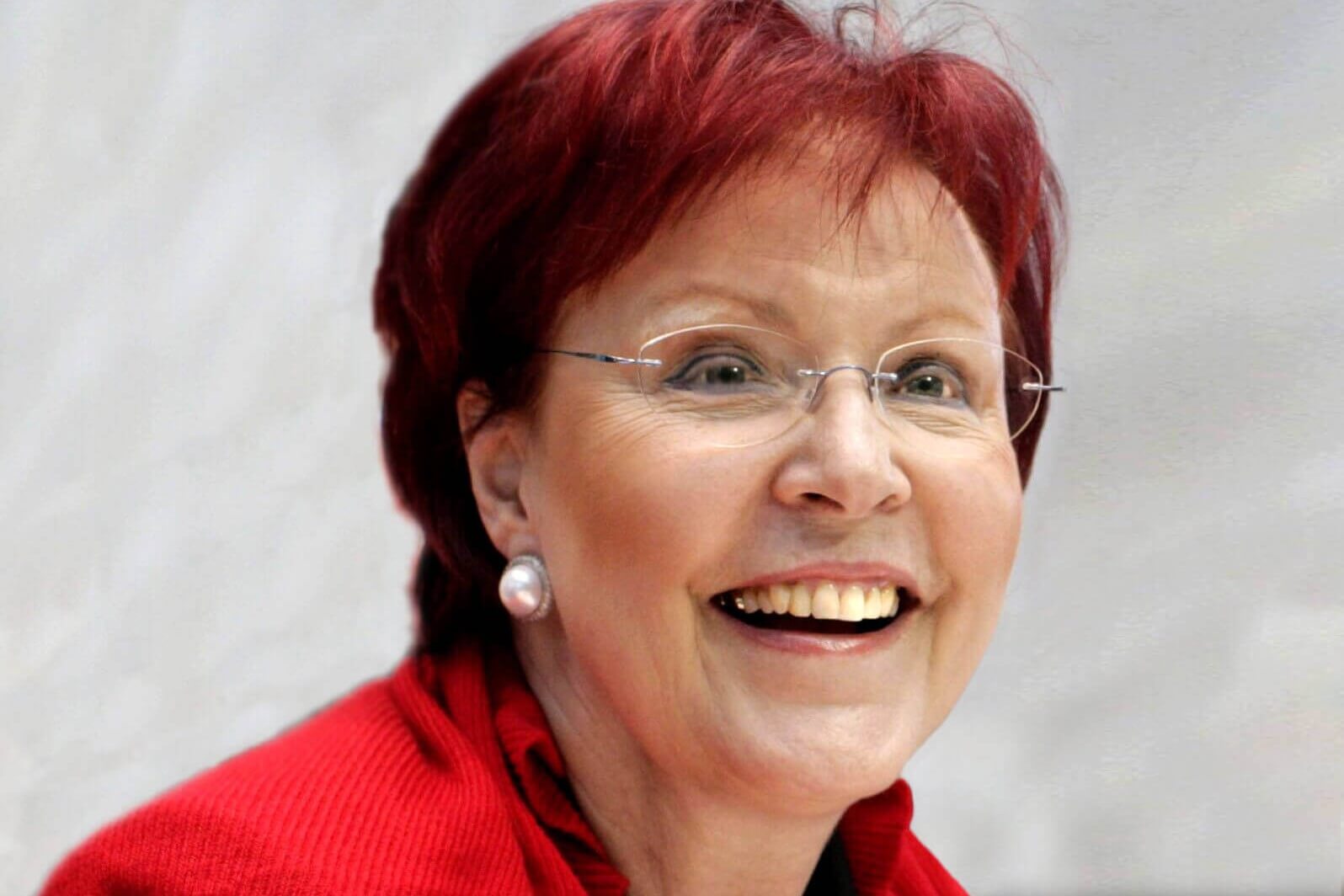In light of the German Presidency of the Council of the European Union, the Council for Sustainable Development advocates a stronger partnership of equals with Africa. Council member Heidemarie Wieczorek-Zeul speaks about the need for and opportunities offered by a new EU–Africa strategy.

Member of the German Council for Sustainable Development (RNE) Heidemarie Wieczorek-Zeul, Former German Federal Minister for Economic Cooperation and Development and Vice-Chair of Friends of the Global Fund Europe Board for Germany, Photo: © Heidemarie Wieczorek-Zeul
The German Council for Sustainable Development (RNE) has recently published a recommendation on the topic of a new EU–Africa strategy. What are the key points of its position?
Heidemarie Wieczorek-Zeul: Very fundamentally speaking, what we need is a partnership for peace between the EU and Africa. We must place the needs of the people on both continents at the core of our focus. This includes, for instance, the joint fight against climate change, preventing armed conflict or putting a stop to the flow of monetary assets away from African countries. We must also adjust trade policy such that it supports the creation of an African free trade area. And we need full transparency regarding the funds that are available for Africa.
Where financial support is concerned, there is again talk of debt relief for African countries. What potential do you see for these plans?
There is currently enormous pressure on all sides to approve true debt relief. The private sector will have to play its part, too, however. China as well. The requirement is though that the funds not be used to consolidate government budgets, but rather to realise the UN’s Sustainable Development Goals. Another substantial problem is the issue of tax avoidance and profit shifting. Some 50 billion US dollars flow out of African countries in this way every year. This money too should be put toward realising the 2030 Agenda. In order to combat this, the African countries need to be incorporated into the Automatic Exchange of Information between tax authorities. This is common practice between the G20 countries and those of the OECD, but many African countries are not yet included. Additionally, efforts must be made that the true ownership structures of companies are named and known. A shared commitment to the taxation of digital companies is needed. All of which will depend on there being decisive action taken on the part of governments in the individual countries.
What alliances are there that will help make these recommendations a reality?
Countries that are ready and willing must lead the way and involve civil society as they do so. The African Union has laid out a clear official position on these issues. Now it is up to the member states of the EU to make a joint commitment. A partnership of equals will need financial support as well. China and Russia are already active on the African continent. It is time for the EU to act as well.
The private sector still plays an important role here. Do you see this as a benefit or a hindrance?
The deciding factor is in what areas and with which aims a commitment is made. One possibility is of course an involvement in the area of climate neutrality and in the expansion of the African infrastructure for power supply. The African Union as well has committed itself to the UN’s sustainable development goals. In areas where things get more tricky, the African Union needs to be the first point of contact for consultations.
On the point of the UN’s Sustainable Development Goals, the world as a whole is still lagging behind what is needed. Would a strengthened partnership of this kind be an accelerating impetus for the 2030 Agenda?
Yes, definitely. But here as well, only if the German Federal Government takes more targeted action on issues of sustainable development. In the area of strategies for global health, for instance, there are a great number of plans but as yet no quantifiable indicators. The will is certainly there. That’s just not enough on its own.
To what extent is the coronavirus pandemic affecting approaches to a new partnership with Africa?
Worldwide people have understood that we will only have succeeded in fighting the virus once it has been beaten back in all countries. There is more awareness now that this is only possible by working together. Debt relief is thus more important than ever. Recovery programmes for African countries are also needed to help them stave off negative impacts as a result of the pandemic. The World Bank and the International Monetary Fund could be the ones to take this forward. Having the EU as a driving force here would no doubt also be advantageous.
Germany’s Presidency of the Council of the European Union has just shy of three months left in its term. What should the Federal Government set as its priority in the time remaining?
The planned summit between the EU and the African Union (AU) has unfortunately been cancelled for this year. That is regrettable. However, the Federal Government can still send a clear political signal. In the Green Deal, it is specified that the African countries are to receive support in adapting to climate change and in the area of climate neutrality. This can be elevated in terms of its priority on the agenda.
EU–AU partnership for peace: entering a future of sustainable development together (Recommendation of the Council for Sustainable Development, 15 October 2020)
On 15 October 2020, the German Council for Sustainable Development (RNE) published cornerstones on the topic of a partnership of equals with Africa. The core of the position paper comprises a set of recommendations for the realisation of climate protection targets, trade policy with Africa, gender equality and migration. The paper will be presented to the Federal Government shortly.